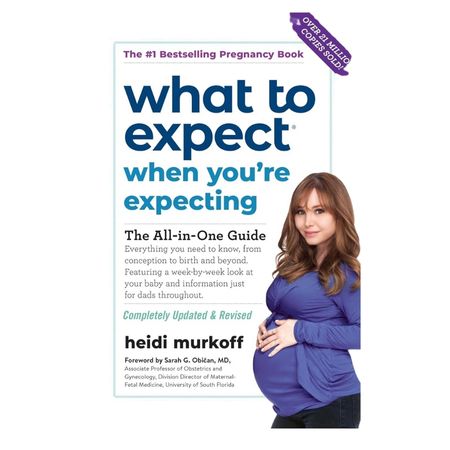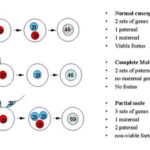
Orgasm? Yes, you heard that right—orgasms bring pleasure, and we often don’t question whether they are safe until we get pregnant. After confirming a pregnancy, mothers have a question about whether orgasms can affect or cause a miscarriage, especially during the first trimester, as this early stage can bring a range of emotions.
Anxiety during this time is completely normal, but don’t worry—orgasms are safe and do not affect your pregnancy or harm your baby.
Does Orgasm Cause Miscarriage in the First Trimester?
A pregnant mother questioned whether orgasm could cause a miscarriage. The good news is that for most pregnancies, orgasms are perfectly safe and do not increase the risk of miscarriage. Similarly, questions about how female masturbation affects fertility often arise. In most cases, female masturbation has no negative impact on fertility or pregnancy.
While having an orgasm, your body experiences muscle contractions, but these contractions are not strong enough to harm the baby or cause a miscarriage. While having an orgasm does not reach the fetus and semen can’t enter the uterus, orgasms are not only safe but can help relieve stress and anxiety, which is a bonus during this emotional time. Your baby is well-protected in the uterus, cushioned by amniotic fluid, and your body is designed to handle the physical changes of pregnancy.
When Orgasm Is Not Safe to Orgasm in the First Trimester
During pregnancy, the first trimester does not threaten most women. Women are usually allowed to have sex and even orgasm during such periods. The only advisable thing is for them to seek advice from their health practitioners based on their condition. They can advise them on the personal life of every woman, taking into consideration her general medical history and any present pregnancy.
There are conditions where your doctor will recommend you not to have sex during pregnancy or even orgasm. Such conditions usually include the following:
- High-risk pregnancy
- History of recurrent miscarriage
- Ectopic pregnancy
- Placenta previa: where the placenta covers the cervix
- Leaking amniotic fluid
- Other placental problems
If your healthcare provider has advised you to avoid sexual intercourse or intercourse that causes orgasm because of any of these medical conditions or any other health conditions, then this is something you should observe. Your healthcare provider would have guided you according to your particular health needs and with the consideration of keeping you and your baby safe.
Why does miscarriage occur?
Yes. While most miscarriages happen in the first trimester, it’s not because of orgasm, but rather, abnormal development of the fetus or maternal health conditions, advanced maternal age, or implantation issues. When it comes to people who get pregnant through Assisted Reproductive Technology (ART), they get more doubt at every stage about whether it is safe to orgasm during early pregnancy of IVF or whether IUI is generally safe for women with low-risk pregnancies.
If engaging in sexual activities involving oral stimulation, partner interaction, or sex toys, consider these precautions:
Barrier protection: If a person is engaging in penetrative sex, then he should be educated about the use of condoms. Failure to apply it and penetrative sex will lead to the risk of sexually transmitted infections (STIs), which if left untreated, would trigger severe complications during pregnancy.
Hygiene: The toys, hands, and genitalia should be cleaned with soap and water before and after use to prevent the entry of bacteria into the vagina.
Nail care: Ensure your fingernails are always short to avoid accidental scratches or cuts.
Why the first trimester to be considerd more?
During the first trimester (weeks 1 to 12), the baby’s major organs and systems begin to form. In this period, morning sickness and fatigue can interfere with sexual performance. However, this does not mean that you will not want to have sex. In some times, your body is already becoming more sensitive. For example, your breasts may be more tender to the touch and therefore more easily stimulated by your partner or yourself.
Second Trimester (Weeks 13-26)
In this time period, when the morning sickness has passed, your body is slowly settling back down. The second trimester is often referred to as the “honeymoon phase” of pregnancy because many women experience an increased sex drive. Sex and orgasm during the second trimester may be the most enjoyable, the main one being the increased blood flow during pregnancy causing your vagina to relax. More relaxation means more sensitivity and easier orgasms. You may feel uterine contractions or cramping after orgasm. This is completely normal and even happens when you are not pregnant.
Third Trimester (Weeks 27-40):
During the last trimester of pregnancy, you might feel physical discomfort, back pain, trouble sleeping, swollen feet, and fatigue. Women may feel self-conscious about their changing body, and your baby bump gets expanded, which can be uncomfortable. In some cases, you just may not have the energy for sex. In this time, possible higher levels of vaginal discharge can decrease sensation for you and your partner, making it harder for you to have an orgasm.
Get Answers to Your Pregnancy Questions with This Book

Conclusion:
Most of the time, orgasms during the first trimester are completely safe and do not increase the risk of miscarriage in pregnancy. The muscle contractions during orgasm are weak and won’t hurt the baby, who is safely covered with the amniotic sac. On the other hand, ejaculation can also benefit women carrying a low-risk pregnancy with stress relief, better sleep, and well-toned pelvic muscles. However, if you happen to be at a high risk of developing complications or if there are specific complications, then it would be advisable for you to seek advice from your care provider.












